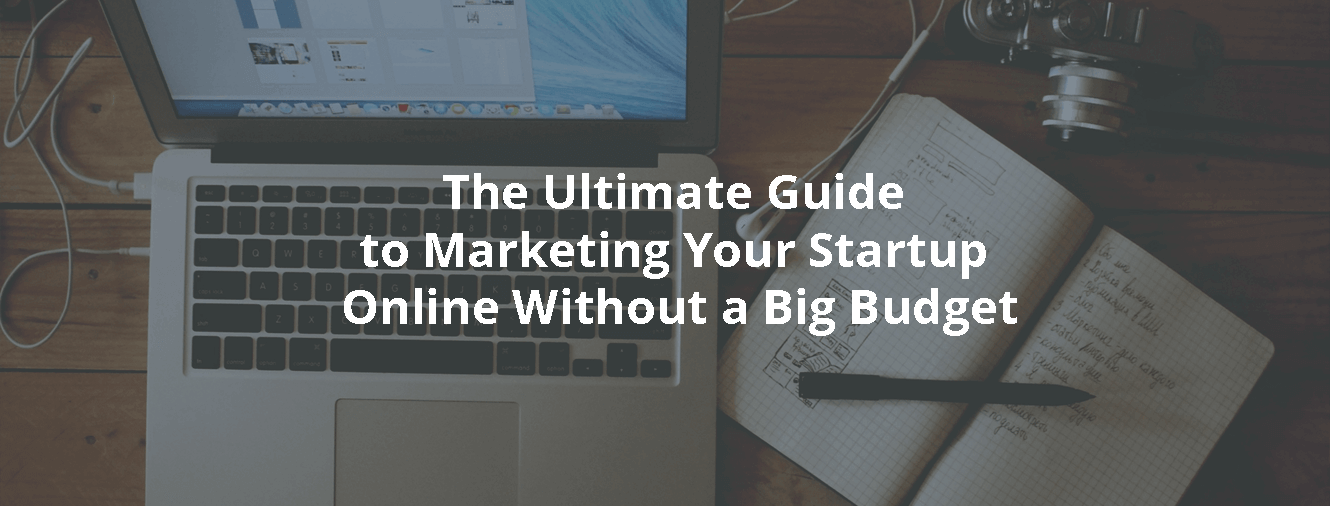
Startup marketing is a whole different science.
“Build and they will come” doesn’t work.
Those overnight success stories are often the result of years of hard work. Startup marketing is challenging because of limited resources (time, money, or even talent). Every effort, no matter how small, must be flawlessly executed. Traditional strategies don’t always work. So what can you do when you just don’t have the budget for a big marketing campaign?
Let’s go over six things that can get your marketing moving in the right direction, without having to spend much besides sweat equity.
1. Focus on Your Target Customer
Although you might think that the entire world is interested in getting your product or service. The harsh reality is that a lot of times only a small portion is interested in your product. Because of this you end up wasting both time and money by trying to target everyone. We already spoke earlier about Buyer Personas, now is the time to think about them again 😉
Sometimes your Buyer Personas can be a couple of different groups. Because of this, It is important to stay focused on reaching your target customers who are mostly likely to help establish and grow your business. Rather than trying to attract a largo group, try to zero in on a target segment that will help you reach your short-term goals. Maybe this segment in your Buyer Personas is made up of early adopters (who are eager to buy and test out new products), or maybe you know a particular segment which you know how to reach. Whatever segment you choose, staying focused will help you reach your target more efficiently and it’s a better use of your limited resources.
2. Build Strategic Partnerships
One of the ways which helps your landing pages convert is by building trust and credibility. One of the ways to build that trust and credibility is by having great strategic partnerships. Choose a business that you’re passionate about. An ideal partnership would be with a company that offers a complementary service. This way you can refer business to each other and on your side use the credibility of the established brand to have that credibility reflect on to you.
Next to getting the extra visibility by just having a referral link to each other, maybe you can even take it up a level and work out a way to implement a referral fee on both sides. With a referral fee, you will create an extra monetary incentive on top of the new partnership that each of you can bring in.
3. Build a Network With Online Influencers in your Industry
A different way to look into partnerships is the building of a strong online network. Building a strong online network should be the foundation of any marketing strategy. Having other people share your brand and your content is an incredibly powerful thing.
Of course when you’re just starting out with your online business there is no network available yet for your new brand. You have to get out there and start being active with (influential) people. Follow them on their social networks, comment on their posts, share their content with your friends, engage with them and make them notice you. Don’t turn into a stalker, but show them that you care about who they are and what they do and that they should care about you too. Always be sure to include a link back to your website on your online profiles and in the signature of your email.
Next to using things like Twitter search – for example, to find online influencers around certain topics, Buzzsumo is a great way to find out who shares what type of content. Just by doing a search based on your products target market keywords you can find out the people who write the most shared articles around your subject for example.
4. Incentivize People to Share
If you want people to start talking and sharing your product or service, there’s nothing easier than giving them an incentive to do so. For example, there are a lot of startups which use a features on their landing page to incentivize people to share that they just signed up in order to be able to skip the queue. Another example would be tweeting about your product or posting about it on Facebook, in exchange for this sharing you could then give away some extra perks.
Holding a contest with a nice giveaway always does wonders for people to incentivize them too. Don’t know how to set up a contest? Have a look at Rafflecopter for example. Rafflecopter is a great resource to manage giveaways. (they even include a free program).
They key with incentivising people though is to get creative and make sure there is an actual value in it for your potential customers.
5. Develop Branded Content
Developing branded content is something which is not done overnight. Branded content is more of a long-term strategy, but when done right could be a great way to market your startup and get the world to know you. If you’re working with only a small team like we do here at Inbound Rocket, it might take a couple of months before your content marketing helps you get your brand established. Branded content is taking the content marketing you do a bit to the next level. It’s a great way to align your company themes with a broader range of readers and helps you establish yourself as the expert in the field you’re trying to solve with your startup.
The most important thing with branded content though is that it should be non-promotional. As soon as it is too promotional for your brand people will see through the content and won’t share it. What you want to do is release a white paper for example in which you talk about the results of a survey you did in your industry and talk about the findings which are relevant. You can create infographics highlighting the results etc. The more unique the information is, the more value it will bring and in the end the more likely it is you will earn the attention.
6. Leverage Social Media
The last item we want to highlight is the most obvious tactics of them all, using social media. However just like with any marketing effort there are right and wrong ways of using social media marketing.
The first thing you have to consider is that posting on social media takes time and effort, you need to post consistently and when you start using a social channel you need to continue with it. One of the worst things you can do as a brand is starting out with a big bang on your newly created Twitter account and ending up by rarely posting or even worse turning your Twitter account into a social graveyard. Think about how much time you’re able to spend on this, use tools like Buffer to schedule postings and be consistent, it’s always better to start of slow and move your way up to more postings every day than to decrease the amount of content overtime.
The second thing you need to keep in mind is, that you don’t want your socials channels to be just about you and your (promotional) information about your company. Use a maximum of just 20% of your content to promote your brand, and dedicate 80% to content that really interests your audience and engages them in conversations. Don’t get me wrong, social media is definitely a large part of your marketing mix. But because people use social media to be social, they don’t want to be subjected to your online sales pitch. Always make it about building relationships, rather than annoying your audience with irrelevant content and boosting your own image. Instead, post interesting and shareable information.
Because people use social media to be social, they don’t want to be subjected to your online sales pitch.
The third thing around you leveraging social media is that you should always use the platforms that makes the most sense for your startup and your Buyer Personas. If you can market your products best visually, focus on Instagram or Pinterest for example. If you offer a service that is best expressed by sharing information, develop a strong Twitter or Facebook presence. Be sure to thank anyone who mentions your business in their articles, if you’re up for it you can even engage a bit with your competitors from time to time. This kind of activity will help you put your brand on the map, and strengthen relationships with people in your industry.
Two fundamental truths exist when marketing a startup. One is that a great product alone is not enough to succeed. The other is that no amount of marketing will make a crap product gain a mass audience.
[clicktotweet]“Nothing kills a bad company faster than good marketing”[/clicktotweet]
Successful startup marketing requires that you have both a great product and great marketing. Startup marketing is a blend of complex science AND art. Tested formulas of others should always be approached carefully, what worked for somebody else doesn’t have to work for you. You have to adapt, test and learn from everything you do.
When marketing comes from a passionate perspective and mapped with thoughtful strategy, the results will not only be measurable but exactly the momentum you need to take your startup to the next level.
What marketing strategies have you implemented for your startup? Let us know in the comments.

